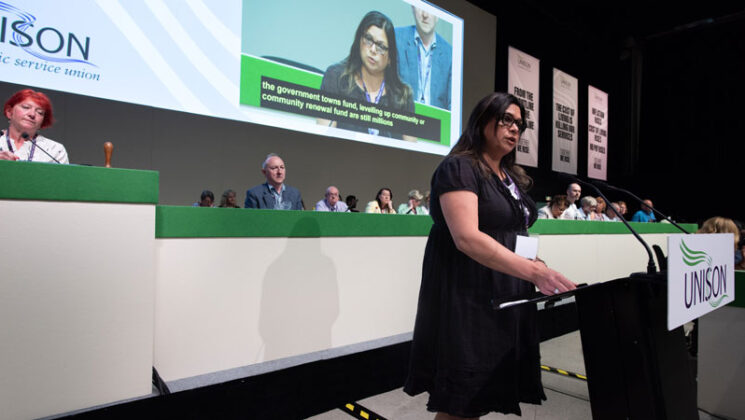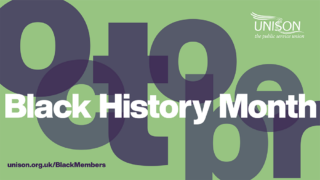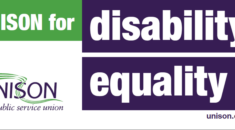Delegates at UNISON’s national conference have torn apart the UK government’s claims to be ‘levelling up’ the country.
During a busy session yesterday afternoon, one delegate after another questioned the Tories’ plans, inclinations and ability to deliver equality.
While expressing “deep scepticism and anger” at the government’s claim to be levelling up the country, the motion cited recent research that shows:
- Funding for levelling up pales in comparison to what has been lost during the austerity years;
- For every job created in the North, just under three were created in London and the Greater South East;
- In-work poverty has risen in the North to 3.5 million in 2019/20.
Proposing the motion, Nicky Ramanandi from Northern region said that, despite levelling up being the so-called “defining mission” of Boris Johnson’s government, “the reality is that it’s the policies of this government that have resulted in the UK becoming one of the most unequal in the world, with widening gaps between rich and poor, Black and white.”
Areas receiving allocations from different levelling up funds are still millions of pounds worse off since 2010, she said. Local authorities in her region have seen their budgets cut by an estimated £15m in that time.
And the shared prosperity fund, which forms a key component of levelling up, worth £2.6 billion over three years, only replaces cash that poor regions used to receive from the EU.
“In our region, we continue to have high levels of unemployment, with particularly high levels of youth unemployment… we’re one of the highest users of food banks in the country and life expectancy is falling,” she said.
“How is that possible, when we live in one of the richest countries in the world? Because the top 1% of households have 230 times more wealth than those in the bottom 10%.
“It’s clear that wealth inequality is entrenched in the UK.”
More of the same
Ms Ramanandi said that the government’s levelling up white paper merely offered “more of the same,” adding: “Any desired outcomes are meaningless without measures to tackle the fundamental inequalities.”
Glen Williams of North West region told delegates: “Up North we are getting really angry. When they talk about levelling up, they should really talk about carve up.”
Mr Williams called the government’s strategy “wobbly as jelly” and said “we need more democratic institutions answerable to Northern people.”
Like many speakers, he felt that the government model of the metro mayor was flawed, instead preferring regional assemblies.
Tony Wright of the NEC said: “Genuine levelling up is long overdue…. But it can’t be left to a Tory government to get it right. We are not fools and we don’t forget, the Tory government levelled down in the first place.”
He said that under different Conservative governments, the country’s coal mining and manufacturing industries had been destroyed, there had been a “bonfire of hard-won trade union rights”, growing inequality and social mobility had gone into reverse.
“Giving power to workers in their communities is against their ideology,” he said, while noting that: “We can’t level up the country without levelling up work.”
Leave it to the labour movement
In her speech, Ms Ramanandi added: “Johnson and Gove’s policies have led us here. What do they know about working class people and their struggles? Their actions during the pandemic showed how much they hold us in contempt.
“With their policy of austerity, the Tories have attempted to dismantle and destroy our communities. How on earth do they think they are well-placed to tell us how to rebuild them?
“If anyone is qualified to take this agenda forward, it’s us, and the wider labour movement.”
Delegates called on the NEC to work alongside TUC, WTUC, STUC, ICTU, Labour Link and others to establish:
- objective criteria to hold the government to account and establish substantive benchmarks for measuring levelling up – such as progress towards increasing the share of national income received in the nation’s pay packets, progress towards closing the gender pay gap and addressing regional disparities in wealth, job opportunities and public service provision;
- alternative policies that will genuinely level up the UK, recognising the importance of public services, higher wages, an effective benefit system and progressive taxation.






